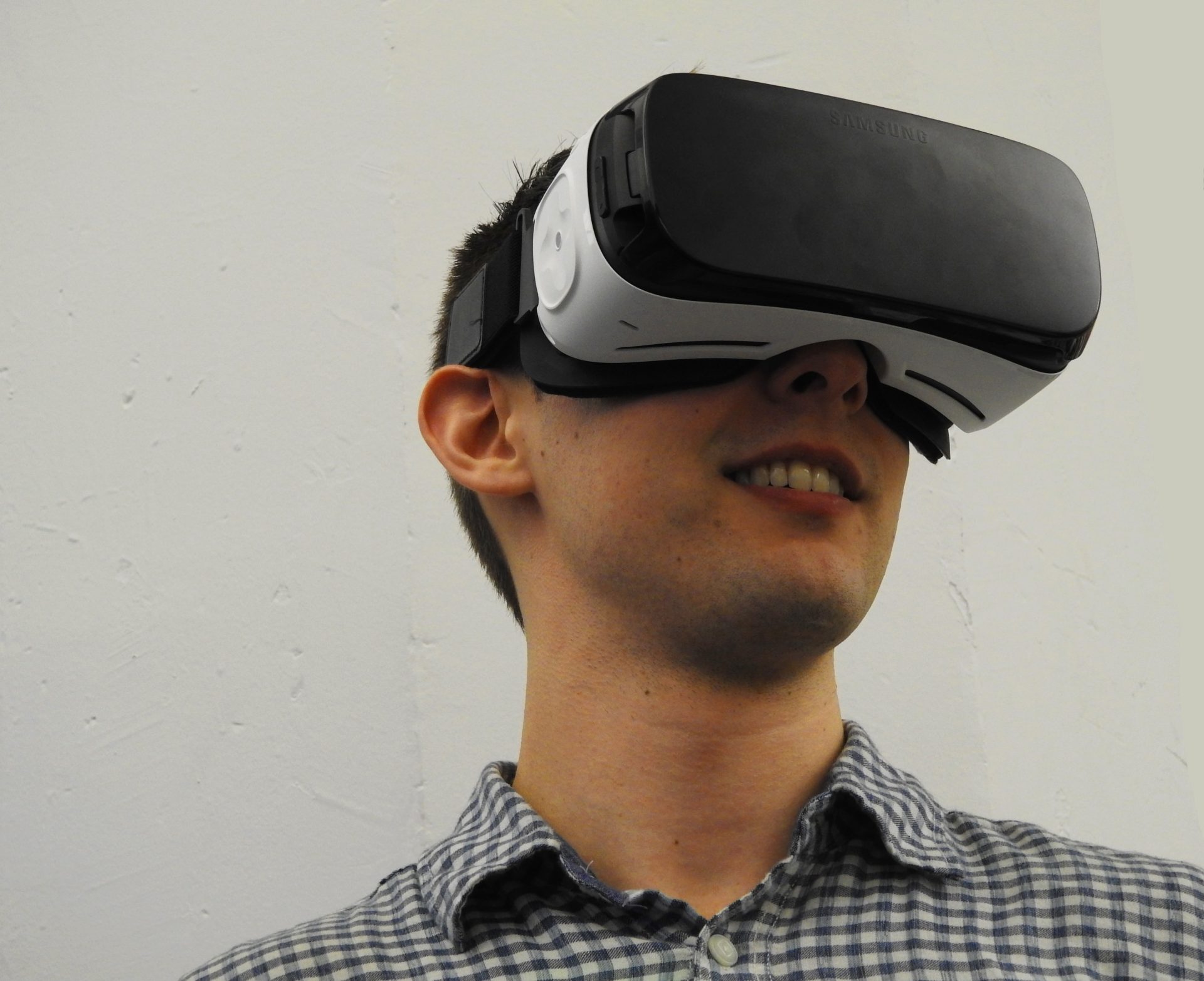The concept of the metaverse, a virtual reality world that offers an immersive and engaging experience, was once the talk of the tech world. Mark Zuckerberg, the tech billionaire and founder of Facebook, was at the forefront of this narrative, so much so that he changed Facebook’s name to Meta in October 2021 to align with his vision. However, almost two years later, Zuckerberg’s ambitious plans for the metaverse seem to be facing challenges and skepticism.
The Metaverse: A Grand Ambition
In 2021, Facebook’s CEO, Mark Zuckerberg, announced a rebranding of the company to Meta, signaling a strategic shift towards building the Metaverse. The idea was to create a ‘virtual world’ where people could work, socialize, and entertain themselves. This announcement was seen as a bid to recapture the company’s dwindling popularity among younger users, and an attempt to pioneer the next frontier of the internet.
The Metaverse was hyped for three main reasons:
- It promised a new way of interacting with the world, offering an immersive and engaging experience.
- It presented new business opportunities, opening up new markets and revenue streams.
- It was an exciting unknown, capturing people’s imaginations with its novelty.
However, these grand promises also led to overblown expectations.
The Rise and Fall of the Metaverse
The metaverse was touted as a place where people could do almost anything they can imagine. It promised a feeling of presence and connection with others, the ultimate dream of social technology. Zuckerberg’s commitment to building the metaverse was evident in his company’s name change. But the reality of bringing this vision to life has proved to be more challenging than anticipated.
Meta’s Struggles
Meta, the parent company of Facebook, has invested heavily in its virtual and augmented reality branch, known as Reality Labs. However, the recent financial figures paint a concerning picture. Reality Labs has reported losses of a staggering $21 billion since last year. While some of these losses can be attributed to long-term investments, the lack of tangible results raises questions about the viability of Meta’s metaverse plans.
Horizon Worlds: A Glimpse into the Metaverse
Horizon Worlds, a game created by Meta, is the closest the company has come to creating a metaverse. It allows users to explore various settings, such as cafes, comedy clubs, and basketball courts, and interact with others. However, the game has received mixed reviews. While Meta claims to have 300,000 monthly users, the number pales in comparison to the billions of people on Facebook and Instagram. Moreover, user reviews highlight the emptiness of the virtual worlds and the lack of engagement due to a limited number of players.
The Challenge of VR Headsets
Meta’s virtual reality headsets, such as the Quest 2, have garnered positive reviews and sold over 20 million units. However, when compared to popular gaming consoles like Sony’s PlayStation 5, the numbers fall short. Zuckerberg’s ambition was not just to create a gaming device but to revolutionize how people live, work, and connect. Yet, virtual reality remains a niche market, with limited mainstream adoption. The technology has not yet reached the level of immersion and sophistication that Zuckerberg envisioned for the metaverse.
The Downfall of the Metaverse
Despite the initial hype, the Metaverse has been experiencing a significant decline. Several tech giants, including Microsoft and Walt Disney, have abandoned their Metaverse projects, citing various reasons from technological limitations to lack of user interest.
The Metaverse’s decline can be attributed to three main factors:
- Technological limitations: Current VR headsets are costly and cumbersome, making the experience of using them less than ideal.
- Vague definition: There is no shared understanding of what the Metaverse is or should be, leading to confusion and disillusionment.
- Lack of user interest: Many people prefer real-world interactions or practical online activities, making the idea of spending time in a virtual world unappealing.
These factors have led to a significant decrease in interest in the Metaverse, evidenced by a drop in Google search traffic for the term.
Meta’s Continued Belief in the Metaverse
Despite the challenges and skepticism surrounding Meta’s metaverse plans, Mark Zuckerberg remains steadfast in his belief in the concept. He acknowledges the uncertainty and risks associated with the venture but sees it as the direction the world is heading. In his efforts to breathe life into the concept, Zuckerberg has made significant investments and continues to do so.
Meta Connect: A Glimpse into the Future
Meta Connect, the annual VR event held by Meta, serves as a platform for Zuckerberg to share updates on the company’s metaverse journey. During the event, he is expected to unveil Meta’s new headset, the Quest 3, and discuss the company’s plans for Horizon Worlds, including its expansion to mobile and desktop platforms. Additionally, new AI announcements are anticipated, showcasing Meta’s commitment to advancing technology in the pursuit of the metaverse.
The Long-Term Vision
Zuckerberg emphasizes that the metaverse is a long-term project. He acknowledges that the current manifestations, such as Horizon Worlds, may not fully capture the true potential of the metaverse. While Meta faces challenges in terms of user engagement and profitability, the company remains committed to its vision. In fact, Zuckerberg has indicated that Reality Labs is expected to incur even larger losses in the coming year, underscoring the long-term nature of the metaverse project.
The Evolving Tech Landscape
While Meta continues to pursue its metaverse ambitions, the rest of the tech world has seemingly shifted its focus. The initial hype surrounding the metaverse has quieted down, with other emerging technologies and trends grabbing attention. Nevertheless, Meta’s dedication to the metaverse suggests that there is still untapped potential in this futuristic concept.
A Historical Overview of the Metaverse
The inception of the Metaverse concept can be traced back to the 19th century, with the discovery of binocular vision by Sir Charles Wheatstone. This principle, which involves merging two images to create a 3D perception, laid the groundwork for modern virtual reality (VR) technology.
Fast forward to 2003, Second Life, a virtual world platform, was launched, offering users the opportunity to create avatars, design virtual objects, and interact in a 3D environment. Despite initial popularity, the platform struggled to maintain its user base, and by the 2010s, it had largely faded into obscurity.
In the literary world, the term “Metaverse” was first coined by Neil Stevenson in his 1982 novel, Snow Crash. It depicted a virtual escape from a bleak reality. This idea was further explored in the 2011 novel Ready Player One by Ernest Cline, which was later adapted into a movie in 2018.
The corporate leap into the Metaverse began in earnest in 2014 when Facebook acquired Oculus VR for $2 billion. This marked the beginning of Facebook’s transformation into more than just a social media company
The Future of the Metaverse
Despite the current challenges, it is too early to write off the Metaverse. The concept may be experiencing growing pains, but it still holds potential. It’s not about the physical world replacing the online world, but rather the two coexisting in parallel. The Metaverse may have hit a plateau for now, but with continued technological advancements and user adoption, it could still become a mainstream phenomenon.
The Pivot to Artificial Intelligence (AI)
In the wake of the challenges facing the Metaverse, tech companies are pivoting to the next big thing: Artificial Intelligence (AI). Zuckerberg, for instance, recently announced a new focus on generative AI, which involves creating machines capable of generating their unique content, such as answering questions and summarizing documents.
This shift to AI is not a complete abandonment of the Metaverse but rather a strategic realignment. As Zuckerberg puts it, the Metaverse and AI are “happy bedfellows” – you can’t have a Metaverse without AI, and you need AI to create a Metaverse. Therefore, while the focus may be shifting, the dream of the Metaverse is far from dead.
Customer Loyalty and Brand Strength: The Pillars of Apple’s Success
Apple’s unwavering customer loyalty and unparalleled brand strength stand as monumental pillars supporting the tech giant’s enduring success. These elements are not just facets of Apple’s strategy; they are the bedrock of its global dominance and the driving force behind its impressive sales figures. But what is it about Apple that cultivates such deep-seated loyalty among consumers?
At the heart of Apple’s brand strength lies a meticulous focus on quality, innovation, and user experience. From the sleek design of the iPhone to the seamless functionality of macOS, Apple products offer a level of polish and integration that speaks directly to the consumer’s desire for reliability and elegance. This commitment to excellence transcends mere product specifications—it’s woven into the very fabric of the Apple experience, turning users into advocates and customers into loyalists.
Moreover, Apple’s brand is synonymous with innovation. Each product release is not just an update; it’s a statement—a testament to Apple’s ongoing mission to push the boundaries of what’s possible. This relentless drive for improvement and the courage to redefine entire industries resonate deeply with consumers, fostering a sense of pride and belonging among Apple users.
But Apple’s brand strength extends beyond its products. The company has masterfully crafted a narrative of privacy, security, and environmental responsibility, addressing growing consumer concerns in an increasingly digital and eco-conscious world. By positioning itself as a champion for these values, Apple not only enhances its brand image but also deepens its connection with customers who share these priorities.
The impact of this profound brand loyalty on Apple’s sales cannot be overstated. Loyal customers not only ensure steady revenue through repeat purchases but also serve as brand ambassadors, expanding Apple’s reach through word-of-mouth and social influence. This organic form of marketing is invaluable, as it comes with a level of authenticity that traditional advertising can seldom achieve.
In conclusion, Apple’s brand strength and customer loyalty are not mere outcomes of its success; they are the very engines that drive it. As the company continues to innovate and align itself with the values of its user base, this symbiotic relationship between Apple and its loyal customers is set to propel the brand to new heights, further cementing its status as a leader in the global tech landscape. The enduring nature of this loyalty, coupled with Apple’s commitment to excellence, positions the company exceptionally well to navigate the challenges and opportunities of the ever-evolving tech market.
Innovations and Market Trends: Steering Apple Towards Future Success
Apple’s trajectory has consistently been marked by its ability to not only respond to but also anticipate market trends and consumer needs. This foresight, combined with a relentless drive for innovation, cements Apple’s status as a vanguard in the technology sector. Each new product launch and software update is a reflection of Apple’s keen understanding of the evolving digital landscape and its commitment to staying ahead of the curve.
In recent years, Apple has adeptly navigated shifts in consumer behavior and technological advancements. The company’s move towards developing more eco-friendly products and packaging resonates with a growing consumer emphasis on sustainability. This alignment with societal values not only bolsters Apple’s brand image but also taps into a market segment that prioritizes environmental consciousness.
Moreover, Apple’s foray into health and wellness through features like the Apple Watch’s heart rate monitoring and the Health app’s comprehensive fitness tracking reflects a broader industry trend towards health-centric technology. By integrating these features into its products, Apple not only diversifies its offerings but also positions itself at the intersection of technology and wellness, meeting the modern consumer’s desire for devices that enhance all aspects of life.
The introduction of services such as Apple TV+ and Apple Arcade signifies Apple’s recognition of the shifting dynamics in entertainment consumption. With an increasing number of consumers turning to streaming services for content, Apple’s expansion into this domain showcases its adaptability and ambition to become a one-stop-shop for consumers’ digital lifestyle needs.
However, innovation at Apple is not confined to product features or services; it extends to the very core of its business model. The transition towards a greater emphasis on services revenue, through subscriptions like Apple Music and iCloud, reflects a strategic pivot from a transactional sales model to a more stable and continuous revenue stream. This shift not only aligns with market trends favoring subscription models but also ensures a more predictable and resilient financial future for the company.
In conclusion, Apple’s continuous stream of innovations and its strategic alignment with emerging market trends are pivotal to its ongoing success and market dominance. By staying attuned to consumer preferences and industry shifts, Apple not only reinforces its position as a leading innovator but also secures its relevance and appeal to future generations of technology users. As Apple continues to navigate the ever-changing tech landscape with agility and vision, its commitment to innovation remains a beacon of its growth strategy and a key driver of its sales performance.
Competitive Landscape: Navigating the Tech Ecosystem
In the ever-evolving realm of technology, Apple stands as a titan, yet it navigates waters filled with formidable competitors. Understanding and responding to the competitive landscape is crucial for maintaining its edge and driving sales in a market that is as dynamic as it is ruthless. Apple’s approach to competition exemplifies its strategic foresight and its unwavering commitment to innovation.
Apple’s competitors range from smartphone manufacturers like Samsung and Google to software giants such as Microsoft. Each poses unique challenges and opportunities for Apple. For instance, Samsung’s vast product lineup and rapid innovation pace present a direct challenge to Apple’s hardware offerings. Meanwhile, Google’s Android operating system offers an alternative mobile platform that contrasts with Apple’s iOS, providing consumers with choices that influence market dynamics.
Despite these challenges, Apple has adeptly positioned itself through a blend of premium branding, ecosystem lock-in, and continuous innovation. The company’s focus on creating seamless experiences across its device ecosystem provides a compelling value proposition that many consumers find worth the premium price. This ecosystem, once entered, offers convenience and integration that competitors find challenging to replicate, thereby fostering customer loyalty and repeat purchases.
Furthermore, Apple’s strategy involves a keen emphasis on user privacy and security, setting it apart in an era where data breaches and privacy concerns are at the forefront of consumers’ minds. By prioritizing these elements, Apple not only differentiates itself from competitors but also aligns with growing consumer demands for secure and private tech solutions.
However, the competitive landscape is not static, and Apple’s strategies must evolve in response to new threats and opportunities. Emerging tech companies and shifting consumer preferences can disrupt even the most established markets. For example, the rise of wearable technology and home automation presents new arenas for competition and growth. Apple’s entry into these markets with products like the Apple Watch and HomePod reflects its proactive approach to leveraging new trends to expand its product portfolio and tap into new revenue streams.
In conclusion, Apple’s ability to navigate the competitive landscape is a testament to its strategic acumen and its deep understanding of the market. By continuously innovating, maintaining a strong brand identity, and addressing consumer needs, Apple not only withstands competition but often sets the standards to which others aspire. In the face of new challenges and emerging rivals, Apple’s commitment to its core values and its ability to adapt will be crucial in sustaining its leadership and driving future sales in the global tech ecosystem.
Conclusion
The journey of the Metaverse has been a rollercoaster ride, marked by high hopes and harsh realities. Its initial promise of revolutionizing human interaction has been met with significant hurdles. However, with the pivot towards AI, there is a chance that the Metaverse could still become a reality. Whether or not the Metaverse lives up to its hype, one thing is clear: the journey towards the next frontier of digital technology is far from over.
As we continue to explore the potential of the Metaverse and AI, it’s crucial to approach these technologies with a balanced perspective, recognizing their potential while also being aware of their limitations. Only then can we truly harness their power to create a better future.
See first source: BBC
FAQ
1. What is the metaverse, and why was it once a significant topic in the tech world?
The metaverse is a virtual reality world offering immersive experiences where people can interact, work, and socialize. It was a significant topic in the tech world due to its promise of an immersive and interconnected virtual space.
2. Why did Mark Zuckerberg change Facebook’s name to Meta in 2021?
Mark Zuckerberg changed Facebook’s name to Meta in October 2021 to align it with his vision of building the metaverse, emphasizing the company’s commitment to this concept.
3. What challenges have Meta, formerly Facebook, faced in realizing its metaverse plans?
Meta’s struggles include significant financial losses in its Reality Labs division, limited engagement in Horizon Worlds (its metaverse-like game), and the challenge of mainstream adoption of virtual reality (VR) headsets.
4. What is Horizon Worlds, and how has it fared in the context of the metaverse?
Horizon Worlds is a game created by Meta that allows users to explore virtual settings and interact with others. It has received mixed reviews, with concerns about the limited number of players and the emptiness of virtual worlds compared to the billions of users on Facebook and Instagram.
5. How have Meta’s VR headsets, like the Quest 2, performed in the market?
Meta’s VR headsets, including the Quest 2, have sold well, with over 20 million units sold. However, they fall short when compared to popular gaming consoles like Sony’s PlayStation 5, and VR technology remains a niche market.
6. Does Mark Zuckerberg still believe in the metaverse concept despite the challenges?
Yes, Mark Zuckerberg remains committed to the metaverse concept and acknowledges the uncertainties and risks involved. He continues to invest in the development of the metaverse.
7. What is Meta Connect, and what is its significance in Meta’s metaverse journey?
Meta Connect is Meta’s annual VR event where Mark Zuckerberg shares updates on the company’s metaverse plans. During this event, new products and advancements related to the metaverse are unveiled, showcasing Meta’s dedication to the concept.
8. What is Meta’s long-term vision for the metaverse?
Meta’s long-term vision for the metaverse is that it is a multi-year project. Mark Zuckerberg acknowledges that the current manifestations, like Horizon Worlds, may not fully capture the metaverse’s potential. Despite challenges, Meta remains committed to this vision.
9. How has the tech landscape evolved in relation to the metaverse?
While the metaverse initially generated significant hype, the tech landscape has since shifted its focus to other emerging technologies and trends. However, Meta’s continued dedication to the metaverse suggests that there is untapped potential in this futuristic concept.
Featured Image Credit: Hammer & Tusk; Unsplash – Thank you!













